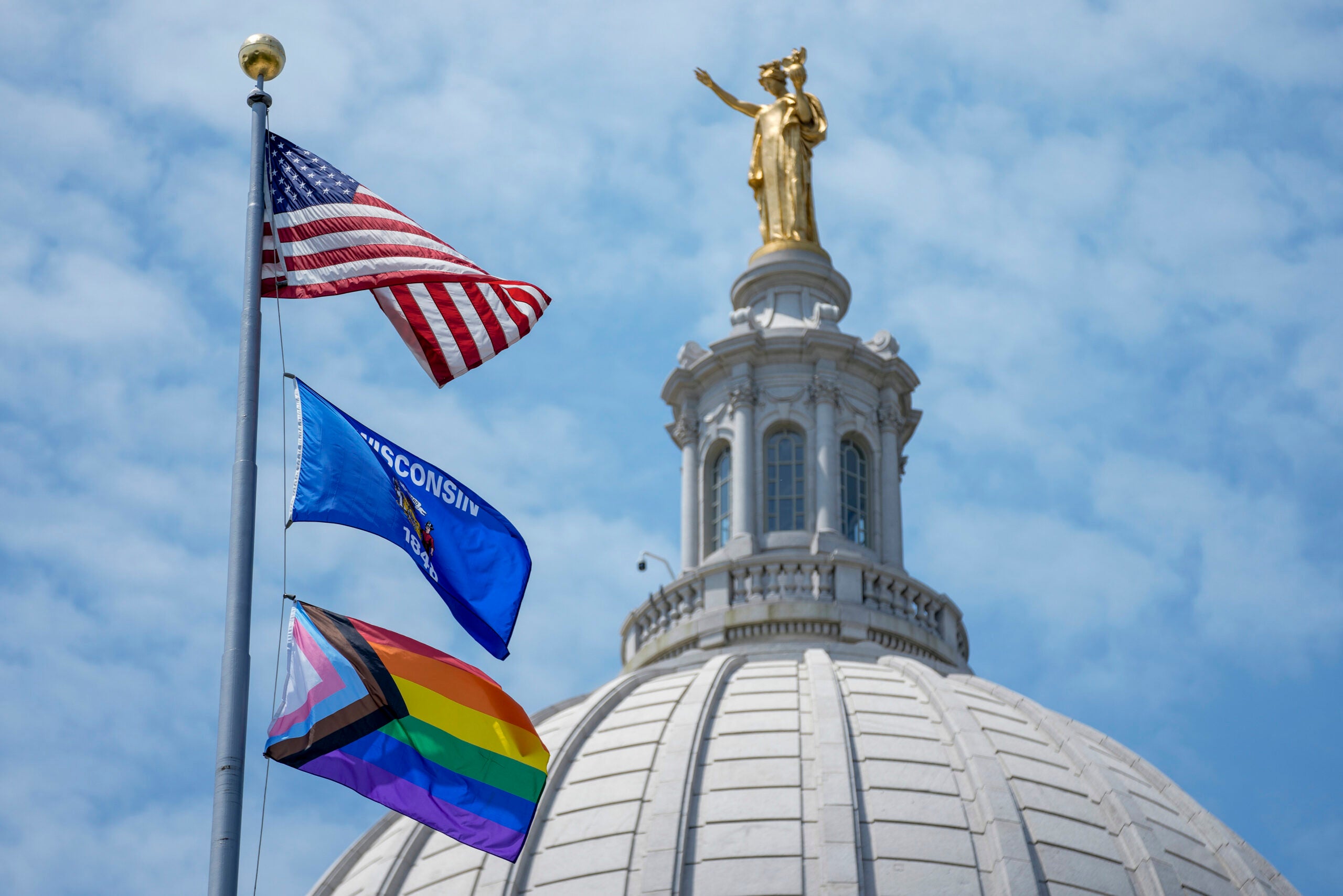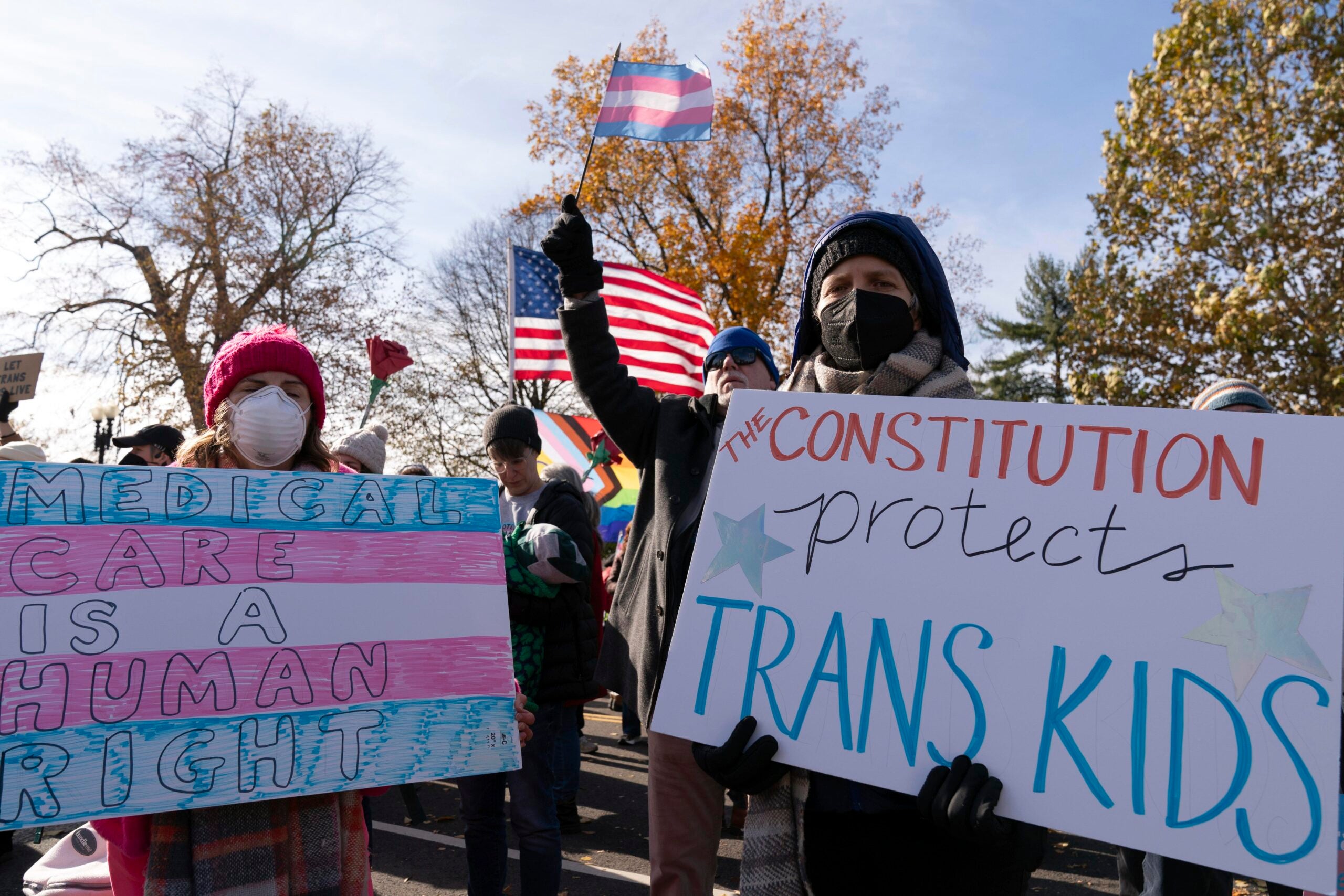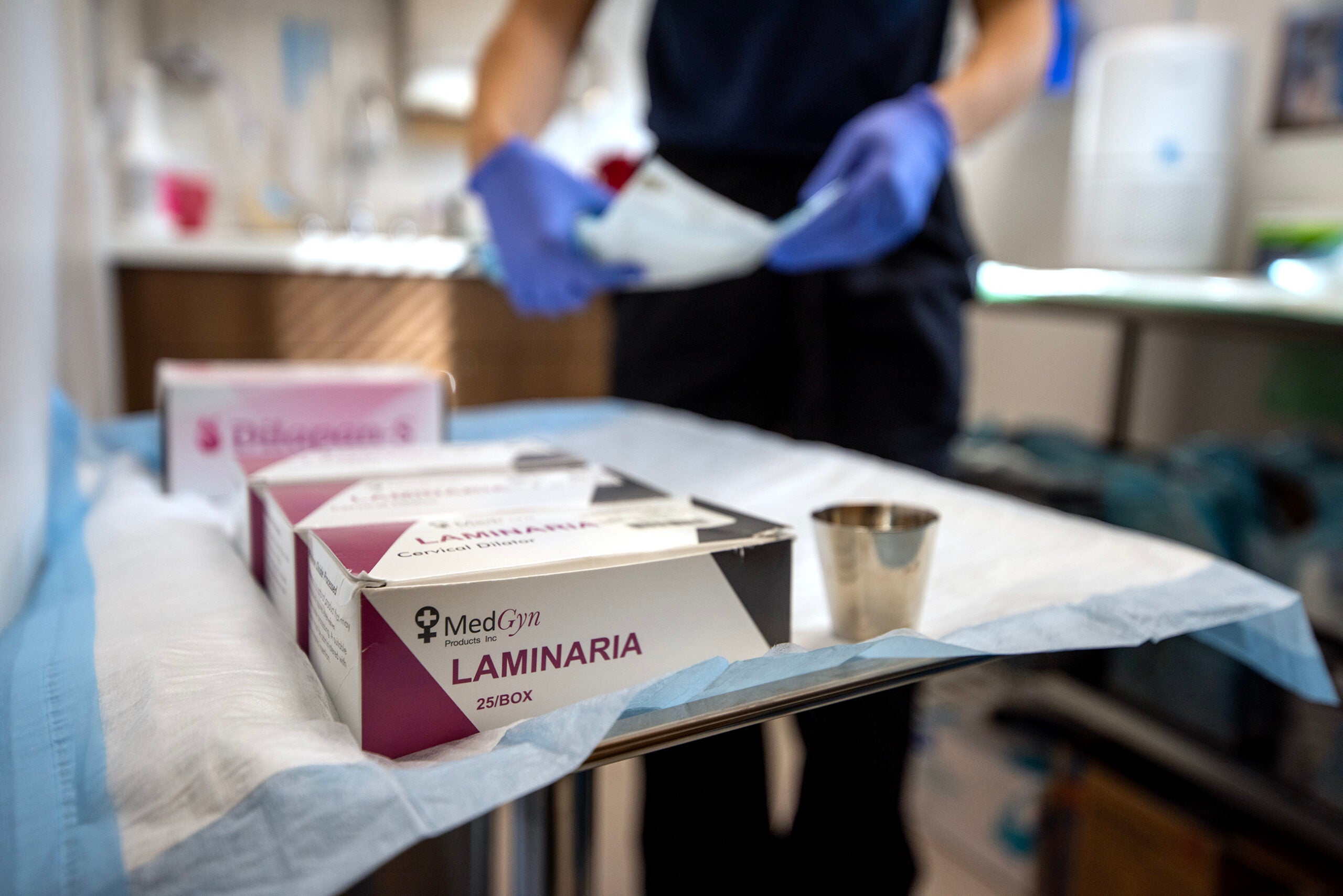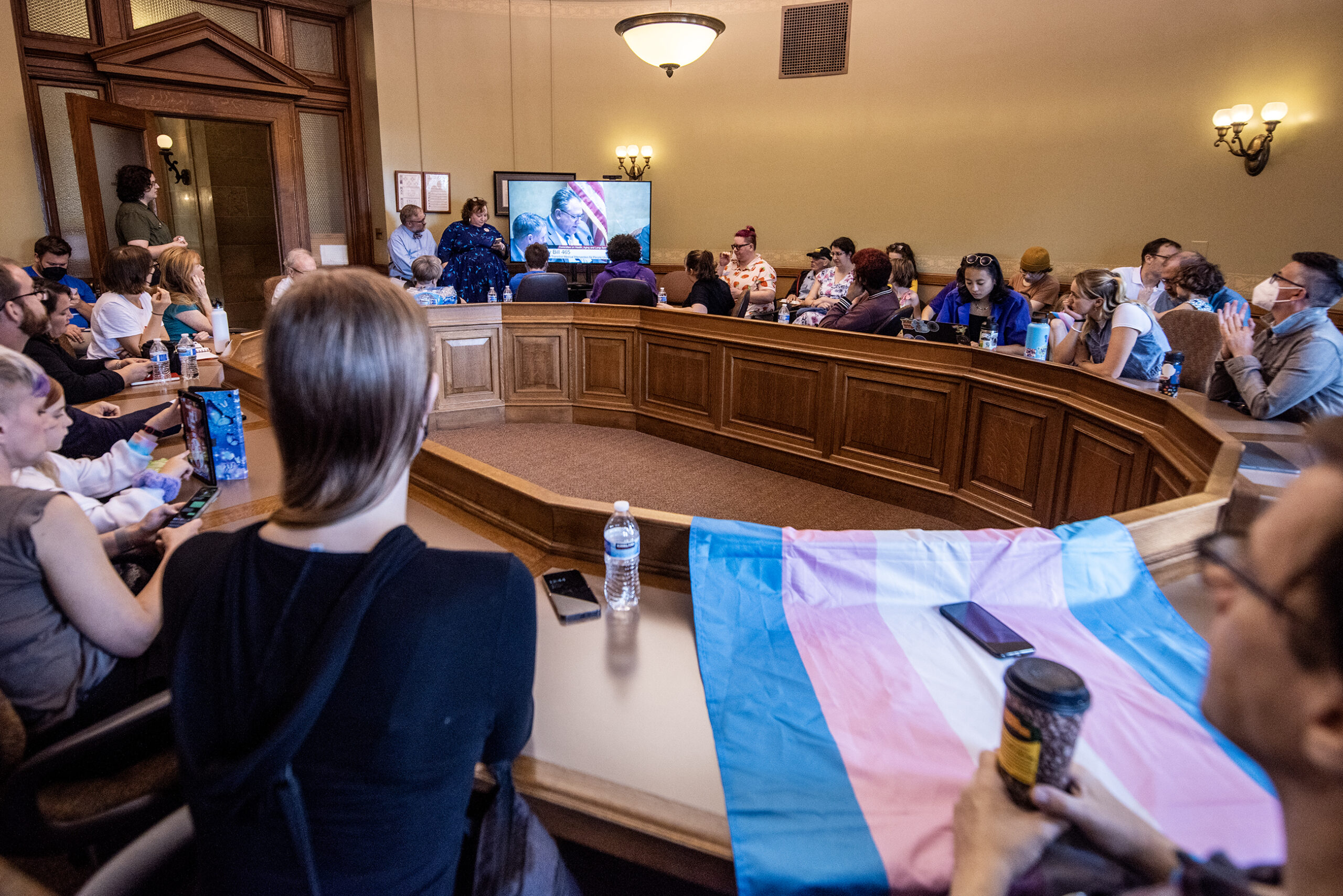Republican lawmakers in Wisconsin are circulating a bill that would ban certain gender-affirming health care — including hormone therapy and surgeries — for minors, the latest in a stream of such proposals that have passed through state legislatures nationwide in recent years.
The bill would cause a medical provider to lose their license if they provided certain medical services to people under 18 for the purpose of “changing the minor’s body to correspond to a sex that is discordant with the minor’s biological sex.”
In a press release, Rep. Scott Allen, R-Waukesha, a co-author with Assembly Speaker Robin Vos, R-Rochester, and Sen. Duey Stroebel, R- Saukville, said the goal is to prevent young people from “making life-altering, irreversible decisions that cause mental and bodily harm” before their brains have fully developed.
News with a little more humanity
WPR’s “Wisconsin Today” newsletter keeps you connected to the state you love without feeling overwhelmed. No paywall. No agenda. No corporate filter.
The bill’s introduction came as a court in Montana found that a similar ban passed there violates the state constitution’s equal protection and privacy laws. A federal court upheld similar laws in Kentucky and Tennessee on Thursday.
While nearly two dozen states have passed such bans, court challenges to them have been largely successful, said Chris Geidner, a journalist and commentator who specializes in the law and LGBTQ+ issues.
But, he added, such bills have become popular proposals in Republican-held Legislatures in recent years, even in states — like Wisconsin — where they are unlikely to receive sign off from a Democratic governor.
“This is a trend because some states started doing it and it worked,” he said. “It is a well-worn pattern of targeting an unpopular minority and passing laws to do so to rile up your base.”
Nationwide, the number of young people seeking such care has increased in recent years. Treatment for gender dysphoria can range from social transition — such as using a new name or pronouns, or changing clothing and hairstyles — to hormone replacement therapies, to surgeries.
Several Wisconsin hospitals and health care clinics provide gender-affirming care, following the approval of a child’s parents or guardians and doctors, and usually in the form of puberty blockers and hormone replacement therapies. Surgery is a less common option, with minors accounting for about 7.7 percent of surgery recipients, according to a review in the Journal of the American Medical Association.
The Pediatric and Adolescent Transgender Health center at the University of Wisconsin does not perform genital surgery on minors and only provides top surgery after extensive evaluation, including mental health evaluation.
In a statement, UW School of Medicine and Public Health Dean Robert N. Golden and UW Health CEO Dr. Alan Kaplan said they will continue to support transgender and nonbinary patients.
“UW Health and the University of Wisconsin School of Medicine and Public Health are committed to providing gender-affirming care that is evidence-based, patient-centered, and that focuses on the health and wellbeing of patients seeking the bright future they deserve,” the statement reads. “We will continue to lead clinical, research and education endeavors that allow patients to live their best and most fulfilled lives.”
The Wisconsin bill would subject a medical provider to investigation if they performed or referred a patient to treatments such as puberty blockers, hormone replacement theory, or surgeries, including “removing any otherwise healthy or nondiseased body part or tissue.”
It would not prohibit care if a person was born with intersex characteristics or requires the care for reasons of physical disorder, injury or illness.
A provider found to have provided that treatment would not be subject to criminal penalties under the bill, but would lose their license to practice.
According to the Movement Advancement Project, a progressive think tank, 21 states have approved or implemented bans on gender-affirming care for minors. Five states, including Oklahoma, Alabama, Florida, North Dakota and Idaho, make it a felony to provide that care.
This spring, Republican lawmakers included a restriction on using Medicaid funds for gender-affirming care in their budget proposal. Gov. Tony Evers vetoed that provision, which came just a few years after a federal court struck down another Wisconsin law that restricted Medicaid coverage for adults going through gender-affirming care. The judge in that case found that it violated the U.S. Constitution’s equal protection clause.
If this bill moves forward and is ultimately approved by the Legislature, it’s all but certain that Evers would veto it, too. In July, he pledged to veto any legislation targeting trans Wisconsinites.
Recent studies suggest that a slim majority of Americans don’t support bans on gender-affirming care for minors. Democrats are more likely to oppose these bans than Republicans.
In a statement, the Legislative LGBTQ+ Caucus, comprising four Democrats, decried the latest proposal.
“Once again, Republicans are interfering with private medical decisions that belong in the hands of patients and their doctors — not politicians,” the statement reads. “Gender-affirming care reduces gender dysphoria and helps people live healthy and authentic lives.”
The ACLU of Wisconsin issued a statement calling the proposal an attack on the rights of youth, and said that untreated gender dysphoria can have severe mental health effects.
“The bill is openly discriminatory — permitting gender-affirming care for some youth while banning it for trans youth — and lacks medical, legal or moral grounding,” said Melinda Brennan, ACLU-Wisconsin’s executive director.
The bill’s authors argue they are the ones protecting young people, by giving them time to develop before making changes to their bodies — akin to restrictions on smoking cigarettes or getting tattoos.
“Our children are not experiments,” reads the call for co-sponsors circulating the Legislature. “Children are vulnerable and easily swayed by peer pressure and the opinions of others. They need to be protected and should not be the subjects of experimental treatments or operations that could leave them sterile for the rest of their life.”
Many major medical organizations, including the American Academy of Pediatrics the American Academy of Child and Adolescent Psychiatry, the American Medical Association, the American Psychological Association and the American Psychiatric Association offer guidance on age-appropriate care, and argue that such care is medically necessary.
Wisconsin Public Radio, © Copyright 2025, Board of Regents of the University of Wisconsin System and Wisconsin Educational Communications Board.






